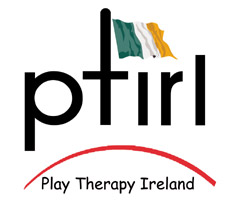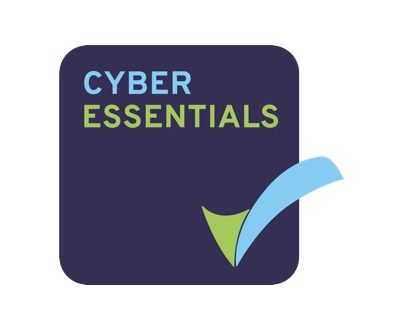This play therapy course, recognised by Play Therapy Ireland has been clinically accredited by PTUK and PTI. It is based on PTI’s International standards of competencies. It is the only course in the world that has been validated through clinical outcomes research – see news. Participants who complete the course successfully will have considerable credibility with employers.
Please click here for a full Career Guide and Brochure
For Garda vetting please contact contact@ptirl.org.
You can start on the course but must be successfully vetted before you can start your practice. This process takes around 6 weeks so please apply for this as early as possible.
Obtain a Grant to do our Post Graduate Certificate in Therapeutic Play Skills Level 9 Training with APAC (Academy of Play and Child Psychotherapy) in-conjunction with UCC (University College Cork)
If you require financial aid for your educational pursuits, the Irish Social Welfare offers a Training Support Grant that could potentially assist you. To check if you meet the eligibility criteria, kindly visit their website and reach out to one of their friendly case officers who will be happy to guide you through the process. It’s important to work with the Dept of Social Protection, we cannot guarantee any individual will be approved for this grant.
If you are seeking financial assistance for your educational endeavours, you may explore the Training Support Grant offered by the Irish Social Welfare. This grant has the potential to provide valuable support for your educational expenses. To determine if you meet the eligibility criteria, we recommend visiting their official website and reaching out to one of their approachable case officers. They will gladly assist you in understanding the application process.
It’s important to keep in mind that while we encourage collaboration with the Department of Social Protection and believe that the Training Support Grant can be a valuable resource, we cannot guarantee that every individual’s application will be approved. The final decision rests with the relevant authorities, and eligibility is subject to their criteria and evaluation. We recommend that you explore this opportunity and apply if you meet the requirements. https://www.gov.ie/en/service/11dbee-training-support-grant/
| Course Title | Course Date | Start Dates of Other Modules | |||
| 2nd | 3rd | 4th | Final | ||
|
Postgraduate Certificate in Therapeutic Play Skills Talbot Hotel Stillorgan, Stillorgan Road, Co Dublin A94 V6K5 Ireland |
26/01/24 – 28/01/24 | 12/04/24 – 14/04/24 | 26/07/24 – 28/07/24 | 11/10/24 – 13/10/24 | 06/12/24 – 08/12/24 |
| Postgraduate Certificate in Therapeutic Play Skills
Cork, Ireland |
01/07/24 – 15/07/24 | ||||
The course is at stage 2 of the PTIRl’s four stage training model
Designed for
The course is designed for anyone with experience of children or adolescents, who either works or intends to work therapeutically with them including:
-
Counsellors
-
Psychotherapists
-
Clinical Psychologists
-
Primary School Teachers/Assistants
-
Paediatricians
-
Nursery School Teachers/Assistants
-
Social Workers
-
Play School Teachers/Assistants
-
Care Home Staff
-
Adoption/Foster Agency Workers
-
Nurses
Designed to
- Enhance your career/professional skills
- Increase your satisfaction in working with children
- Give you the skills to help children develop their emotional literacy
- Give you the skills to alleviate behaviour and mental health problems
- Assist your own personal development
- Provide you with the Profession Structure Model competencies defined by PTIrl to work with individual children who have slight to moderate problems
The Certificate course is the first part of programme leading to an MA in Practice Based Play Therapy. It may be undertaken as a ‘stand alone’ course. Successful participants will be awarded 60 M/CAT points by the university.
Synopsis
AN ENLIGHTENED APPROACH TO COPING WITH CHILDREN’S DIFFICULTIES
The course is unique in integrating both non directive and directive approaches to play therapy. The programme content is based upon the theory and practice of humanistic psychology, particularly that of Virginia Axline (“Dibs In Search of Self”), and Carl Rogers and the gestalt play therapy approach of Violet Oaklander. It recognises contributions made by others in the 20th century such as John Bowlby, Margaret Lowenfeld, Donald Winnicott, Rachel Pinney etc. It also places importance on the spiritual aspect of human development. Opportunities for reflection and all forms of creativity enrich the contents of the course.
The lives of children in the present day are highly regulated and controlled. Non-directive play therapy offers a child the opportunity of making choices and taking responsibility for them; expressing him/herself freely; being accepted unconditionally; having his/her deepest feelings respected and accepted. For these reasons their play is not interpreted and no judgements are made.
Such freedoms may only be obtained by the provision of a strong framework. Therefore the adult takes responsibility for the safety of the child, themselves and the environment. Within these constraints, the child has complete freedom to choose. Time boundaries are also considered to be important thus adding a sense of security by adhering to beginnings and ends. In this way the time within a session becomes timeless and the child�s imagination is set free to explore and recreate his/her experiences and to create and make his/her own world.
There are, however, a number of cases where the non directive needs to be complemented by other approaches. For example working with terminally ill, bereaved, autistic children in organisational settings and short term work.
The main items in the ‘Play Therapy Tool-Kit’ are taught and put into practice,
Entry Requirements
The entry criteria for the Certificate Course are as follows:
- A Level 8 Honours Degree in a related subject
- A minimum of two years’ experience either in paid or voluntary work in child related employment
However, students who don’t meet these criteria can access the Course via our Recognised Prior Learning Route which involves the completion of five selected written assignments prior to commencing the Course. In order to proceed via this route, students must hold a Level 7 Qualification plus 10 years’ experience of working with children.
Once you have been accepted on to a course all students are required to obtain new Garda Vetting under the role of Student Play Therapist.
Information regarding the entry criteria for students applying for Certificate courses delivered in Belfast can be found here.
Please note that we are unable to offer places on our Post Graduate Certificate in Therapeutic Play Skills Course to students already enrolled onto another programme.
Learning Objectives
The overall purpose of the course is to enable participants to practice safely and effectively using therapeutic play skills in a variety of settings to provide emotional support to individual children for slight to moderate problems. Upon successful completion of the course each participant will have gained:
– A sound understanding of the principles underlying play therapy and the appropriate use of techniques – the play therapy tool-kit
– Practical skills for running therapeutic play sessions with individual children
– An ability to assess children’s needs and organise the provision of therapeutic play facilities
– An appreciation of the ethical issues
– Increased confidence in using therapeutic play with children and adolescents
– The counselling, therapeutic and practical skills to enable you to carry out therapeutic play
– An understanding of the ethical considerations
– Awareness of your own process and development
– Theoretical knowledge of child development and child psychology
Course Structure
Module Descriptions – (The sequence may vary slightly from course to course)
Module 1 – Course Introduction; Starting to Work Therapeutically With Children; The Therapeutic Play Continuum; Creative Visualisation; Setting Up to Practice; Pharmacology
Module 2 – Music Skills for Working With Individuals and Attachment theory
Module 3 – Storytelling & Puppetry Skills for Use With Individual Children; Comparison of Theoretical Models of Psychotherapy and their relevance to children.
Module 4 – Sand play skills for working with individuals and related theory; the Use of Natural Materials; Child Development Theory (1); Art Therapy for Individuals
Module 5 – Dance and Movement skills for working with individuals; Student presentations; Endings
Learning Methods
Participants will learn through working with other members of the course about the roles and responsibilities of the therapeutic relationship. There will be tutorials on theory but formal teaching and lecturing will be kept to an essential minimum.
Learning will mainly be experiential, practical and collaborative using pair, group work, role-play and case presentations. Homework reading and other assignments will provide new information and consolidation of material from the experiential work encountered within the modules. Writing a process diary and working therapeutically with children are essential parts of the course work. Assignments will be subject of group discussions during the following module.
The experiential aspect of the course will enable you to get in touch with your own inner child, to help you to understand the children’s processes during therapeutic play.
Duration
15 days consisting of 5 x 3 day modules (Fridays, Saturdays, Sundays) spaced 6 – 8 weeks apart.
Awards
Professional: Play Therapy International (PTI) Certificate in Therapeutic Play Skills.
University: Post Graduate Certificate of Therapeutic Play Skills with 60 ‘M/CAT’ points
Venues
Venues already validated by Leeds Beckett (formerly Leeds Metropolitan) University are marked LBU
Venues in Ireland validated by National University of Ireland (NUI) Galway and marked NUI
South East England
Salomons CampusLBU – Broomhill Road,
Tunbridge Wells, Kent TN3 0TG
Midlands & East Anglia
Buckden TowersLBUBuckden, Cambridgeshire, PEI9 5TA
Warwickshire
Stoneleigh Abbey, WarwickshireLBU Stoneleigh Abbey, Kenilworth, Warwickshire, CV8 2LF
West Midlands
The Beeches, BournvilleLBU The Beeches, Bournville, West Midlands, B30 1LS
Northern Ireland
Clotworthy Arts Centre, AntrimLBU Antrim Castle Gardens, Randalstown Road, Antrim, BT41 4LH
West of England & Wales
Engineers House, BristolLBU The Promenade, Clifton Down, Bristol, BS8 3NB
North of England
Leeds/BarnsleyLBU The Northern College, Wentworth Castle, Stainborough
ManchesterLBU Pinewood on Wilmslow, Manchester
Scotland
Rosebery HouseLBU, Edinburgh
Cornwall
Epiphany HouseLBU, Truro, Cornwall, TR1 3DR
London
The Union Jack ClubLBU, Sandell Street, Waterloo, SE1 8UJ
Ireland
Marino Conference CentreNUI, Dublin, Ireland
For Garda vetting please contact contact@ptirl.org.
Ireland
Carnloch Court Training CentreNUI, Cork, Ireland
For Garda vetting please contact contact@ptirl.org.
France
La MoulineLBU St Genest de Contest, Tarn, Midi Pyrenees, France
and other locations upon request
Faculty / Facilitators
Selected from APAC’s faculty of specialist Play Therapy and Creative Arts Facilitators.
Provider
APAC in collaboration with the National University of Ireland
Fees
Please see below a breakdown of the costs associated with the Certificate Course in the Republic of Ireland:
- Course Fee of €3,850
- Purchase of the ‘Healing Path with Children’ Book at €50
- Membership to Play Therapy Ireland – please click here for information on grades and fees
- €300 – €500 to build your Play Kit
- Garda Vetting under the role of Student Play Therapist – please email contact@ptirl.org for information on the associated fees
We would also recommend factoring in your supervision costs with a Play Therapy Ireland Supervisor which you will require whilst undertaking your placement. These charges would be payable directly to the Supervisor and do vary, however if you work on the basis of between €50 and €60 per hour, this should give you a reasonable estimate. You will require around 20 hours of supervision over the course of your placement.
Course fees are not inclusive of accommodation or travel; onsite bed and breakfast accommodation is available at the majority of our Training Centres, but this must be booked directly with the Venue and will incur an additional charge.
Information on the costs associated with courses delivered in Northern Ireland can be found here.

